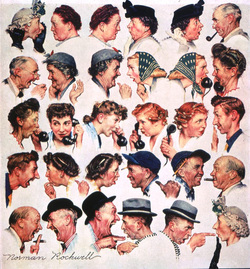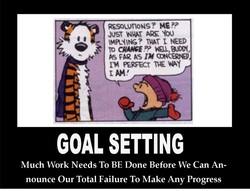 When we gossip, we imitate the homicidal act of Cain when he killed his brother Abel, which makes us “Christian murderers”. It’s not me saying this, it’s the Lord. And there is no place for nuances. If you speak ill of your brother, you kill your brother. And every time we do this, we are imitating that gesture of Cain, the first murderer in history. Pope Francis Language is a powerful force. God spoke and creation was brought into existence. Language has the capacity to incite or inspire. Language is the landscape of the mind. It speaks to who we are and what is important to us. It forms the basis for much of our social interaction. The mouth can be an instrument of war or peace. Sins of the mouth cut deep, deeper than any sword. These sins may not be able to pierce the skin, but they can pierce the heart and do damage to the soul. Satan will take our ill-spoken words and give them a life of their own, with the ultimate goal of using them to separate us and others from eternal life with God. He’ll keep those words echoing in our personal woundedness to the point where we believe and propagate them. He’ll keep them reverberating in our pride to the point where we begin to defend sin, deny our responsibility and even justify our actions. Satan will twist our heart and mind to the point where we become his instrument against Christ and the Church. There are many different sins of the mouth that provide an opening for Satan. Once spoken, words cannot be taken back. Be careful how you use your words. Gossip is idle talk, especially about others. It can be the revealing of secrets, the spreading of rumors or simply worthless conversation. The relative truth of what is being gossiped about is irrelevant to culpability; not all of what is true is permitted to be shared. Gossip can also be a sin of sloth; the time and energy wasted gossiping could have been put to better use. Satan uses gossip to spread his lies, to open doors and to weaken your resolve. Let listening to worldly news be bitter food for you, and let the words of saintly men be as combs filled with honey. Saint Basil the Great Detraction is the spreading of a truth that will cause harm to someone’s reputation, either through the spoken or written word. The mere fact that you know something about someone else does not give you the right to disclose it. More harmful than gossip, which may or may not have an evil intent, detraction’s intent is to cause harm. Detraction is more clearly a work of the evil one. It is often the second wave of gossip. Would we wish that our own hidden sins should be divulged? We ought, then, to be silent regarding those of others. Saint John Baptist de la Salle Slander is verbally defaming someone’s character with the truth. It differs from detraction only in its method of delivery; it is spoken aloud. The intent is the same, to malign someone’s good name. While the written word is typically longer lasting, the spoken word is often more immediate and more painful. Satan will goad you into gossiping and then inflame your passions so that you combine the two in an act of slander. The one who slanders and the one who listens to a slanderer have the devil in their company. One man has Satan on his tongue and the other in his ear. Saint Bernard of Clairvaux Calumny is the malicious uttering of a falsehood causing injury to someone’s good name. The sin of calumny is compounded in that it involves a lie and an attack on someone’s reputation. With gossip and detraction, what is being spread may be true. With calumny, it is a lie from the start. Much as Satan was a liar from the beginning, engaging in calumny places you deep inside the enemy’s camp. To deprive a man of his reputation and honor, one word is sufficient. By finding out the most sensitive part of his honor, you may tarnish his reputation by telling it to all who know him, and easily take away his character for honor and integrity. To do this, however, no time is required, for scarcely have you complacently cherished the wish to calumniate him, than the sin is effected. Saint John Chrysostom In the next blog, we will look at some other sins of the mouth that are damaging to ourselves and others. Until then, make it a gossip free week!
1 Comment
 The principal cause of drift in individuals is the absence of a goal or a purpose in life. Servant of God Fulton Sheen In this culture we encourage people to dream big, set goals and do whatever it takes to accomplish them. We tell our children they can “become anything they want to”, “the possibilities are endless”, “go big or go home”, “what you believe, you can achieve.” Typically this goal setting attitude is applied to school, sports and work. Floating just beneath the surface of these oft heard platitudes is an “I, me, mine” selfish undercurrent. An individualistic, bottom line approach that focus on self and not others, that focuses on self and not God. And while good grades, winning and success are not in and of themselves bad, what about the ultimate goal, the ultimate prize, the ultimate success? What about Heaven? Are we as focused on achieving Heaven as we are in getting good grades, lowering our golf score, landing the right job, toning our body, winning fantasy football, landing a new customer, buying the latest gadget, etc.? Are we seeking first His kingdom or our own? Are we storing up our treasure here where they will rust and decay? Are we turning our goals into gods? You need an ideal, something that will draw you out of yourself and raise you to greater heights. But you see there is only one; it is He, the only truth! Blessed Elizabeth of the Trinity So often we, often unknowingly, substitute the stuff of this world for the glory of Heaven. And in doing so, we shortchange ourselves now and, potentially, for eternity. Yes, as Proverbs tells us, we need a vision, for without it we will perish. But the wrong vision, the wrong goals, the goals and dreams that place God in second position are just as deadly as having no goals. We need to be setting the right goals, to have the right dreams and visions for ourselves and our children. Include God in your goal setting and decision making. Ask Him where He wants you to go to school, what job He wants you to do, what type of vocation He wants you to follow. Speak of the ultimate goal of Heaven and spending eternity with God, because ultimately, Heaven is the only goal that matters! Set your sights upon God and He will not disappoint.  “Truth? What is truth?” Pontius Pilate’s simple, straightforward question has reverberated in the hearts and minds of millions of Christians for 2000 years. Why does the question grab us? I’ve always wondered whether Pilate asked from a place of anguish, arrogance, ignorance or some combination of the above. Without the tone of his words to hear we are left with only the written Word and the interpretation of others. More importantly, I wonder if the question has relevance for us today. Assuming its relevance, is the answer even knowable? In short, my belief is yes the question is relevant and yes the answer is knowable. That does not imply that many will not seek to undermine its relevance or that the answer is easy to find. The question and answer are far too important for Satan to ignore. So, what is truth? St Thomas Aquinas recognized two basic forms of truth, Divine truth and human truth. Divine truth, explained Aquinas, is one, eternal and unchangeable, like that which it describes. Human truth is just the opposite many, finite and changeable, again, like that which it describes. Aquinas further distinguishes the two, by the object of their comparison or connection. If the object of comparison is human, then the truth is a human truth. If the object of comparison is God, than the truth is Divine. God as the “uncreated Creator” only makes sense with God as the object of comparison. It is therefore a Divine Truth. We cannot connect the concept of “uncreated Creator” with a mere creature. It wouldn't be logical. Likewise, if I say that grass is green and the object I use to compare that to is the accepted human convention that grass is green then grass being green is a human truth. Aquinas’ belief in human truth lends itself to the relativism. That is, if enough of us believe a human truth, it becomes true for us. For example, if enough of us decide that what we called green grass will now be called blue, then blue it is. Remember, human truth is many, finite and changeable. Again there is no problem in this – admitting that there is both Divine and human truth and that human truth is relative. That is its essence. The problem occurs when the attributes for one are applied to the other. Specifically, the attribute of relativism, necessarily inherent in human truth is destructive when applied to Divine truth. When it is “decided” that life begins, not at conception but at the point of viability, relativism has been applied to Divine law. When it is “decided” that homosexuality is a legitimate lifestyle and not an intrinsic disorder, relativism has been applied to Divine law. When it is “decided” that the doctrine and dogma of the Church are subject to cultural mores and not immutable, relativism has been applied to Divine law. When it is “decided” that truth must be the servant of tolerance, and not the other way around, relativism has been applied to Divine law. When it is “decided” that the focal point of the liturgy needs to be horizontal and not vertical, relativism has been applied to Divine law. We have erred when we have applied attributes of human truth to Divine truth and in doing so caused untold disasters. It would do us well to remember the words of William Shakespeare: “Truth is truth, to the end of reckoning.” Lord we pray that we, and all of your Church, might adhere to your Divine truth and put our human truth in the service of your most holy and perfect will. |
AuthorBaptized Child of God. Member of the Church Militant. Husband and father. Archives
December 2013
Categories |
 RSS Feed
RSS Feed